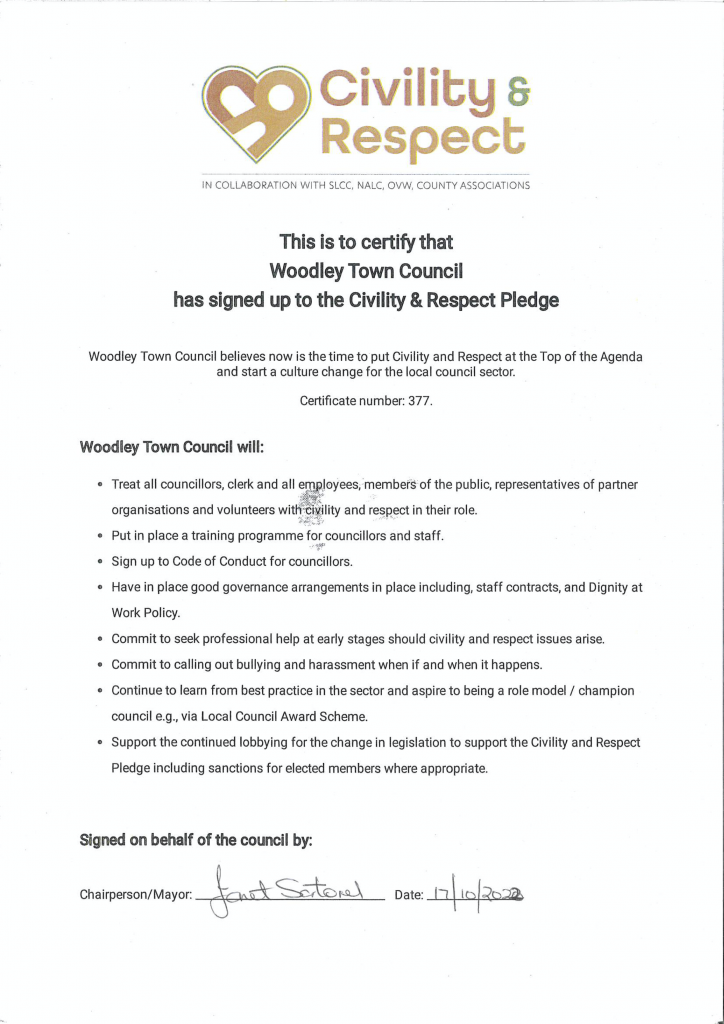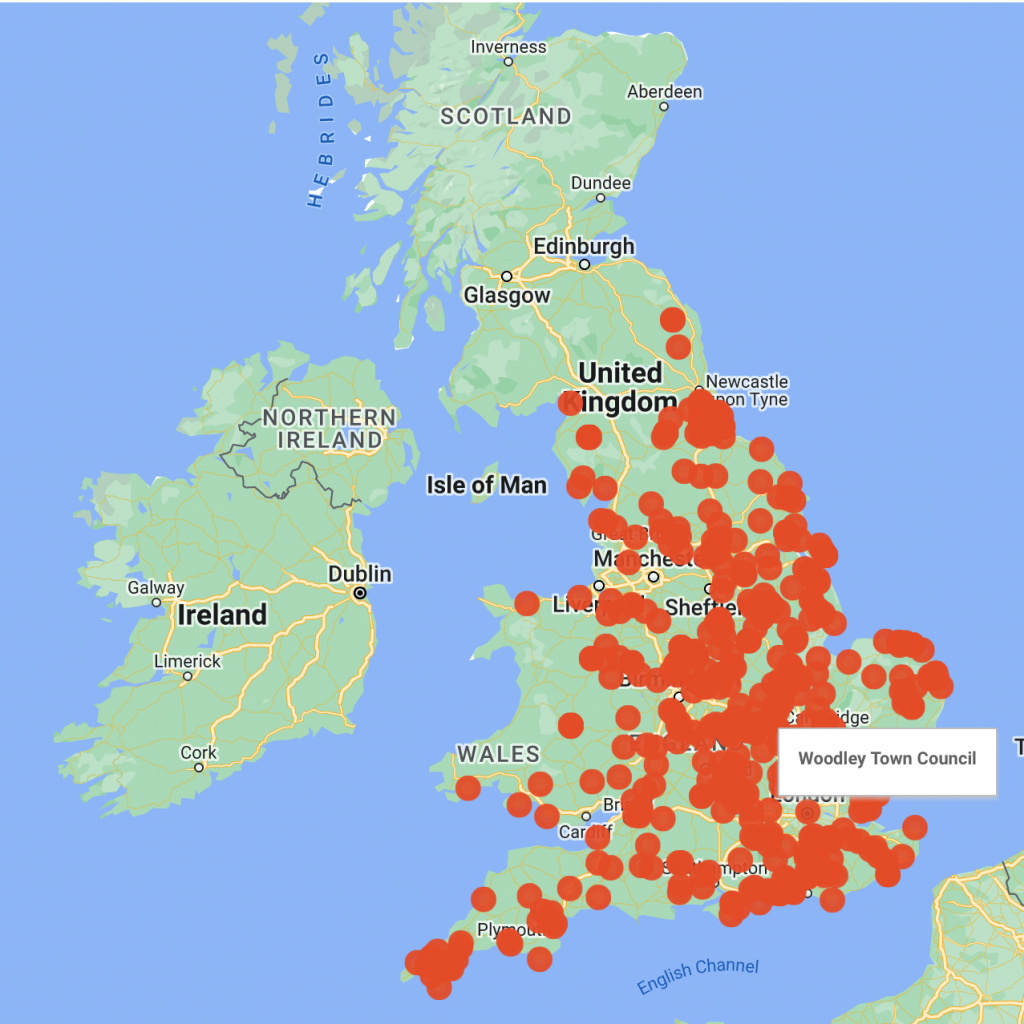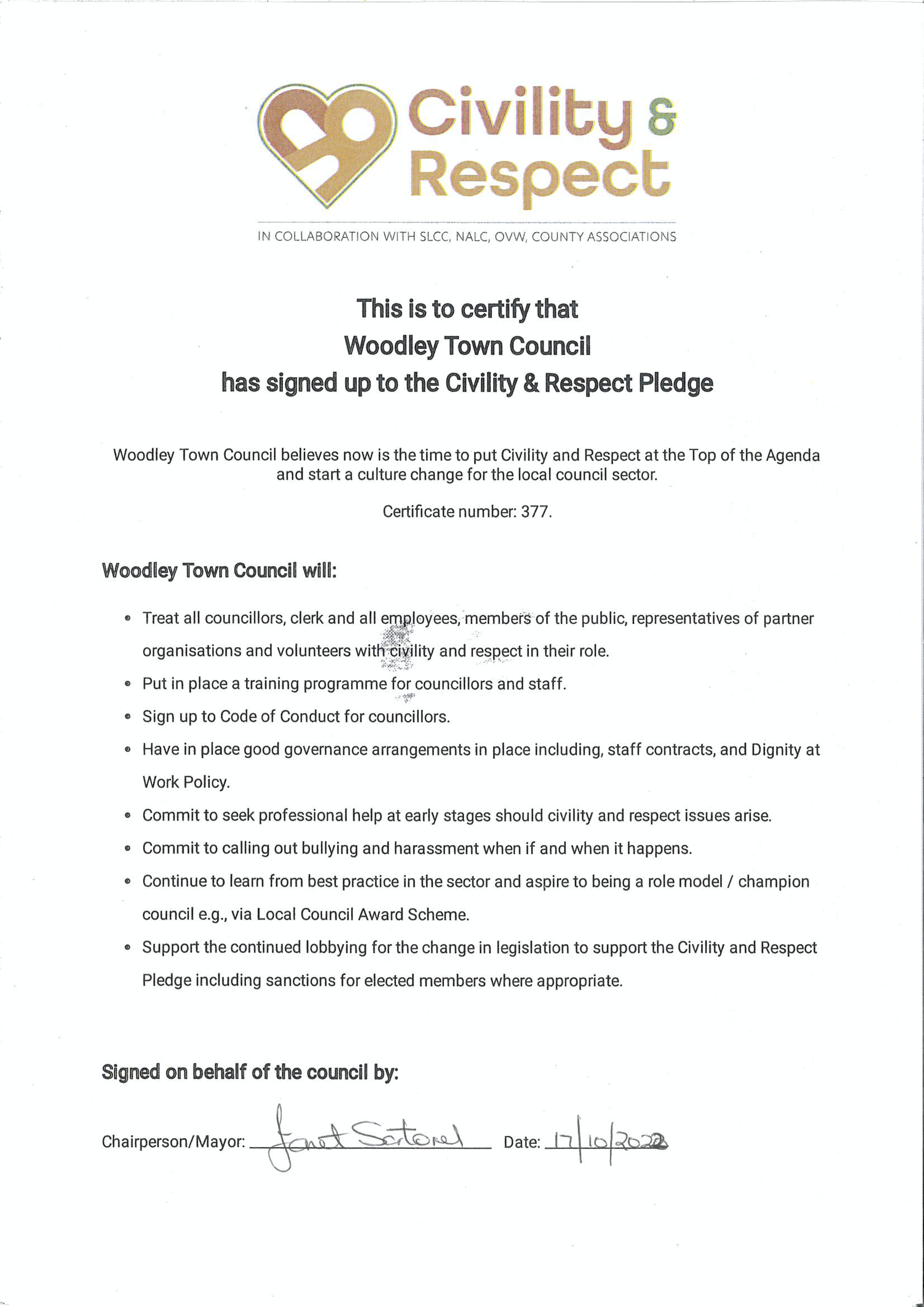At the recent Full Council meeting, Woodley Town Council signed up to the Civility and Respect Pledge
The Civility and Respect Pledge is part of a project created and overseen by the National Association of Local Councils (NALC), One Voice Wales (OVW), the Society of Local Council Clerks (SLCC) and county associations, to put civility and respect at the top of the agenda and start a positive cultural change for the local council sector.

Civility and Respect Pledge
The Civility and Respect Pledge is being introduced to enable councils to demonstrate that they are committed to stand up to poor behaviour, bullying, harassment and intimidation across the sector and to drive through positive changes which support civil and respectful conduct.

Mission statement of the Project
Civility and respect should be at the heart of public life, and good governance is fundamental to ensuring an effective and well-functioning democracy at all levels.
The intimidation, abuse, bullying and harassment of councillors, clerks and council staff, in person or online, is unacceptable, whether by councillors, clerks, council staff, or public members.
This can prevent councils from functioning effectively, councillors from representing local people, discourage people from getting involved, including standing for election, and undermine public confidence and trust in local democracy.
NALC, county associations and OVW, as the membership organisations representing the first tier of local government in England and Wales, and the SLCC, as the professional body for clerks, are committed to working together to promote civility and respect in public life, good governance, positive debate and supporting the well-being of councillors, professional officers and staff.
To that end, the Civility and Respect Working Group will be working to deliver tangible resources, actions and interventions in four main areas: providing councils with the tools to support good governance; lobbying to strengthen the standards regime and encouraging more people to get involved; training; and processes to intervene to provide support to struggling councils.
You can find out more HERE.


